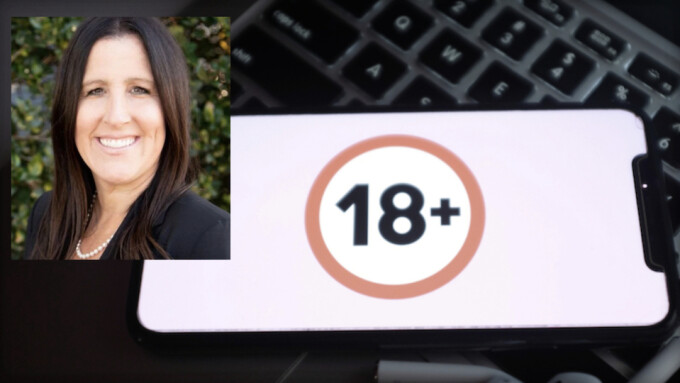BATON ROUGE, La. — Louisiana Governor John Bel Edwards announced last week that he had signed 97 laws passed by the state's Republican-controlled legislature, including a controversial bill sponsored by a faith-based “sex addiction” therapist and state representative, which creates liability for all “online pornography.”
House Bill 142 was sponsored by Rep. Laurie Schlegel (R-Metairie) and “provides civil remedies for parents of minors exposed to online pornography or other explicit material if websites do not have reasonable verification procedures in place,” local news site Louisiana Illuminator reported.
The new Louisiana law specifically targets “content online that could be harmful to them, such as pornography” and is the first such state law in the U.S.
As XBIZ reported, HB142 was introduced in April by Schlegel, who before entering politics was a faith-based couples’ counselor and “sex addiction therapist,” though the concept of “sex addiction” has been widely debunked by secular psychologists and therapists.
“The bill doesn’t force the companies to make the verification system, per se,” the local Baton Rouge Proud news site reported when the bill was introduced. “It does allow Louisianans to sue the companies for not having it. Adults would have to input their driver’s license or other state ID to prove they are over the age of 18.”
Debunked Anti-Porn 'Scholarship' and Self-Determined 'Quotas'
To back her claims about the supposed harms of “pornography” — a term whose legal definition remains notoriously vague — Schlegel quoted veteran anti-porn activist and former academic Gail Dines.
Much of Dines’ supposed “scholarship” around porn has been questioned or debunked. She continues describing herself as an academic, even though the last college which which she claimed affiliation stopped operating several years ago.
According to Baton Rouge Proud, Schlegel said that it is not her intent for the bill to affect sites like Twitter or Netflix, which may include pornography, but rather that she aimed her bill at “commercial entities such as major porn sites that have over 30% of their content being harmful to kids.”
This 30% quota used to define “a pornographic website,” now part of Louisiana law, is an arbitrary number apparently conceived by Schlegel herself.
Schlegel also repeated the widely debunked Christian conservative talking point of a supposed “public health crisis” around porn, which was deployed by several Republican officials between 2016 and 2020. That rhetoric has largely been replaced by the “trafficking” panic, likely due in part to the COVID pandemic highlighting the absurdity of “porn epidemic” claims.
Schlegel returned in April 2022 to that pre-pandemic tactic, telling Baton Rouge Proud that “unlimited access to pornography on the internet is causing a public health crisis for our children.”
Industry Attorney: 'It's a Mini-COPA'
Adult industry lawyer and First Amendment expert Lawrence Walters, of Walters Law Group, told XBIZ that he does not expect Schlegel’s legal innovation to pass scrutiny.
“It’s a mini-COPA law,” Walters said, referring to the never-enforced 1998 Child Online Protection Act. “States tried doing those when the federal COPA law was being challenged. They were all struck down on First Amendment and dormant commerce clause grounds.”
For Walters, “the issue with these ‘civil cause of action’ laws, similar to the Texas abortion law, is who has standing to challenge them until they’re enforced, and who can be named as a defendant?”
Until now, he added, “the courts have yet to definitively sort out whether companies potentially affected by these laws can initiate a legal challenge before someone sues for damages. Until then, the existence of the law can create a chilling effect on protected speech — potentially with no legal remedy.”








